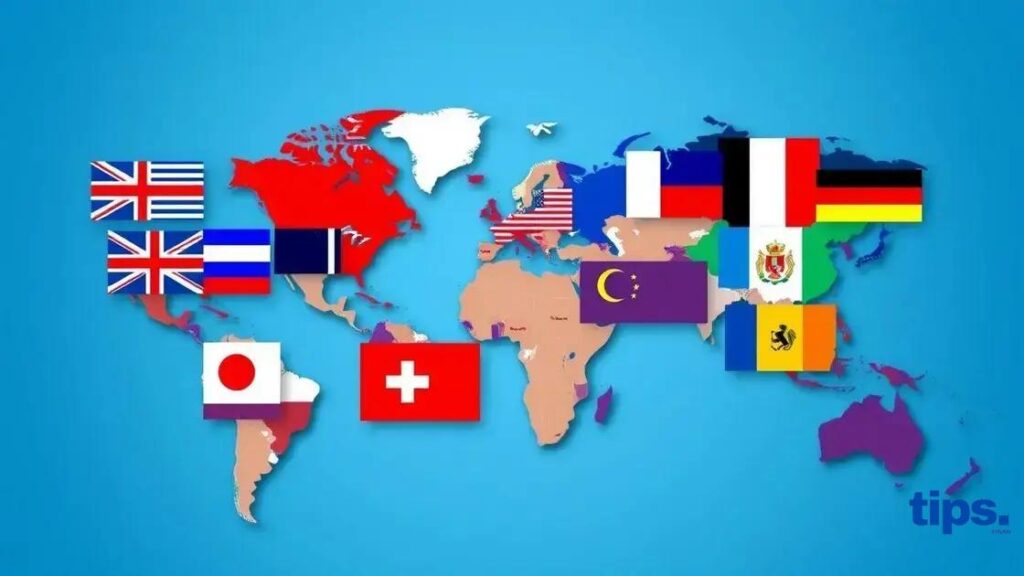Foreign policy developments: What to watch for in 2024

Anúncios
Foreign policy developments significantly reshape international relations, influenced by economic factors, emerging alliances, and key treaties that determine how countries interact and cooperate globally.
Foreign policy developments are constantly reshaping the landscape of international relations. Have you ever wondered how decisions made on a global scale impact your life? Let’s dive into the key shifts happening right now and what they mean for the future.
Anúncios
Understanding recent foreign policy shifts
Recent foreign policy shifts have drawn attention around the globe, reflecting changes in leadership and strategic priorities. Countries are navigating complex relationships, which can directly impact global stability.
For example, the shifting alliances in Europe demonstrate how historical rivalries can evolve. Nations once antagonistic are finding common ground to face challenges like climate change and security threats.
Key Factors Influencing Changes
Several factors contribute to these shifts:
Anúncios
- The rise of new political leaders who bring different ideologies.
- Global economic pressures that compel nations to rethink their foreign policies.
- Emerging technologies impacting defense and diplomacy.
Understanding these evolving dynamics is essential. For further insights on international relations, you can visit the C-SPAN website, which covers various geopolitical developments.
Keeping an eye on these trends will help in grasping how foreign policy will continue to shape the international landscape in the coming years.
Key players influencing global decisions
Countries and organizations play a vital role in shaping global decisions. Understanding who the key players are helps us analyze the dynamics of foreign policy.
Major powers, like the United States and China, often lead discussions on international issues. Their decisions can affect trade, security, and climate action worldwide.
Influential Organizations
Several organizations also significantly impact global policies:
- United Nations (UN): Facilitates cooperation between countries on various issues.
- North Atlantic Treaty Organization (NATO): Provides military alliance and security commitments.
- World Trade Organization (WTO): Regulates international trade and resolves disputes.
These entities are essential to understanding how nations interact on the world stage. For more detailed information on international relations, you can check the C-SPAN website, which provides extensive coverage of geopolitical topics.
By monitoring the actions of these key players, stakeholders can better predict future trends in global decisions.
Analyzing the impact of major treaties
Major treaties play a crucial role in shaping international relations and establishing guidelines for how countries interact. Analyzing these agreements helps us understand their influence on global peace and security.
Treaties can address various issues such as trade, defense, and environmental protection. Their impact often extends far beyond the countries involved.
Key Treaties and Their Effects
Some significant treaties include:
- The Paris Agreement: Aimed at combating climate change by limiting global warming.
- Nuclear Non-Proliferation Treaty (NPT): Focuses on preventing nuclear weapons spread and promoting peaceful uses of nuclear energy.
- North American Free Trade Agreement (NAFTA): Promoted free trade among the USA, Canada, and Mexico, reshaping economic relations.
Each treaty carries specific commitments that countries must honor. For an in-depth analysis of various treaties, check the U.S. State Department website, which provides information on international agreements and their implications.
By examining these major treaties, we gain insights into how they promote cooperation and prevent conflicts in the international arena.
Regional conflicts and their implications

Regional conflicts have significant implications for both the nations involved and the wider international community. Understanding these conflicts can offer insights into global stability and security.
Many factors contribute to regional conflicts, such as territorial disputes, ethnic tensions, and resource scarcity.
Key Examples of Regional Conflicts
Some prominent regional conflicts include:
- The Israeli-Palestinian Conflict: This long-standing conflict impacts not only the Middle East but also relations worldwide.
- The Kashmir Dispute: Territorial tensions between India and Pakistan remain a flashpoint in South Asia.
- The Syrian Civil War: This conflict has caused a humanitarian crisis and significant geopolitical shifts.
These conflicts often lead to wider implications such as refugee crises, economic instability, and shifts in international alliances. For further information on regional conflicts and their effects, you can explore the United Nations website, which covers numerous aspects of global peace and conflict.
Monitoring these situations is crucial for understanding how they affect international dynamics and future policies.
The role of diplomacy in current events
Diplomacy plays a crucial role in shaping current events on the global stage. It involves negotiation and dialogue between nations to resolve conflicts and build relationships.
Effective diplomacy can prevent wars and promote peace through communication and cooperation.
Key Aspects of Modern Diplomacy
Today’s diplomacy focuses on several key areas:
- Conflict Resolution: Mediating disputes through dialogues to find peaceful solutions.
- Trade Agreements: Establishing economic partnerships that benefit multiple countries.
- Environmental Cooperation: Working together to address global challenges like climate change.
Diplomats often work behind the scenes to facilitate discussions and foster understanding between countries. For an in-depth look at how diplomacy influences global interactions, visit the U.S. State Department website, which provides insights into diplomatic efforts and initiatives around the world.
By understanding the role of diplomacy in today’s events, we can better appreciate how nations strive for cooperation and stability.
Emerging alliances and partnership trends
Emerging alliances and partnership trends are reshaping the global landscape. Countries are increasingly forming coalitions to address shared challenges and enhance their influence.
These alliances can take many forms, from trade agreements to military partnerships.
Notable Emerging Alliances
Some notable trends in global partnerships include:
- The Quad Alliance: Comprising the U.S., India, Japan, and Australia, this group focuses on security and trade in the Indo-Pacific region.
- AUKUS: A strategic partnership between Australia, the United Kingdom, and the United States aimed at military collaboration and technology sharing.
- BRICS: An association of Brazil, Russia, India, China, and South Africa, which seeks to promote economic collaboration among emerging markets.
These alliances reflect the shifting dynamics in international relations. For additional insights into global partnerships, check the C-SPAN website, which offers coverage on international trends and policies.
Tracking these alliances can provide valuable insights into future political and economic developments.
| Category | Summary | Example/Source |
|---|---|---|
| Recent Shifts | New leaders and strategies | C-SPAN |
| Global Players | Nations and key groups lead | UN, NATO, WTO |
| Major Treaties | Guide peace and cooperation | Paris, NPT, NAFTA |
| Regional Conflicts | Disputes shift global focus | UN.org |
| Diplomacy | Resolves issues peacefully | State.gov |
| Emerging Alliances | New coalitions form fast | Quad, AUKUS, BRICS |
| Economic Factors | Trade, sanctions, resources | World Bank |
| Future Trends | Tech, power shifts, climate | C-SPAN |
How economic factors affect foreign relations
Economic factors play a significant role in shaping foreign relations. Countries often use their economic leverage to influence global interactions and partnerships.
Understanding how these factors affect diplomacy can provide insights into international decision-making.
Key Economic Influences on Foreign Relations
Several economic factors can influence foreign relations:
- Trade Agreements: Countries negotiate deals to enhance trade, which strengthens ties and improves mutual benefits.
- Sanctions: Economic sanctions can be used to deter aggressive actions by other nations, impacting their political behavior.
- Resource Availability: Access to natural resources, such as oil or minerals, can lead to strategic alliances or conflicts.
Monitoring these economic influences helps us understand the motivations behind diplomatic actions. For further details on how economics affect global relations, visit the World Bank website, which provides extensive resources on international economics.
By analyzing these economic factors, we can better comprehend the complexities of foreign relations.
Predictions for upcoming foreign policy changes

Predictions for upcoming foreign policy changes are essential for understanding how international relations may evolve. Analysts look at current trends to forecast shifts in diplomacy and alliances.
These predictions often consider various factors, including economic conditions, military developments, and global challenges.
Factors Influencing Future Changes
Some key factors that may affect future foreign policy include:
- Shifts in Global Power: The rise of emerging economies can redefine traditional power structures.
- Technological Advancements: Innovations in technology may impact military capabilities and diplomatic strategies.
- Climate Change: As environmental issues grow, nations may collaborate or clash over resources and policies.
By monitoring these trends, one can gain insights into likely future diplomatic initiatives. For comprehensive analysis, you can visit the C-SPAN website, which provides ongoing coverage of foreign policy developments.
Staying informed about these predictions helps individuals and organizations prepare for the evolving landscape of international relations.
In summary, understanding foreign policy developments is crucial
Foreign policy changes impact not only countries but also global stability and commerce. By analyzing key factors such as economic influences, emerging alliances, and significant treaties, we can better comprehend how nations interact.
Staying informed about these trends allows individuals and organizations to prepare for upcoming changes in international relations. By following reputable sources and engaging in discussions around these topics, we can all contribute to a more informed global community.
In this era of rapid change, being aware of foreign policy developments will empower us to navigate the complexities of our interconnected world.
FAQ – Frequently Asked Questions about Foreign Policy Developments
How do economic factors influence foreign relations?
Economic factors, like trade agreements and sanctions, play a significant role in shaping how countries interact and negotiate with each other.
What are some examples of emerging alliances in foreign policy?
Examples of emerging alliances include the Quad Alliance between the US, India, Japan, and Australia, and AUKUS, involving Australia, the UK, and the US.
Why is understanding regional conflicts important?
Understanding regional conflicts helps us analyze their impact on global stability and security, as these conflicts often have far-reaching consequences.
Where can I find reliable information on foreign policy trends?
You can explore the U.S. State Department website and other reputable sources like C-SPAN, which provide updates and analyses on foreign policy developments.





